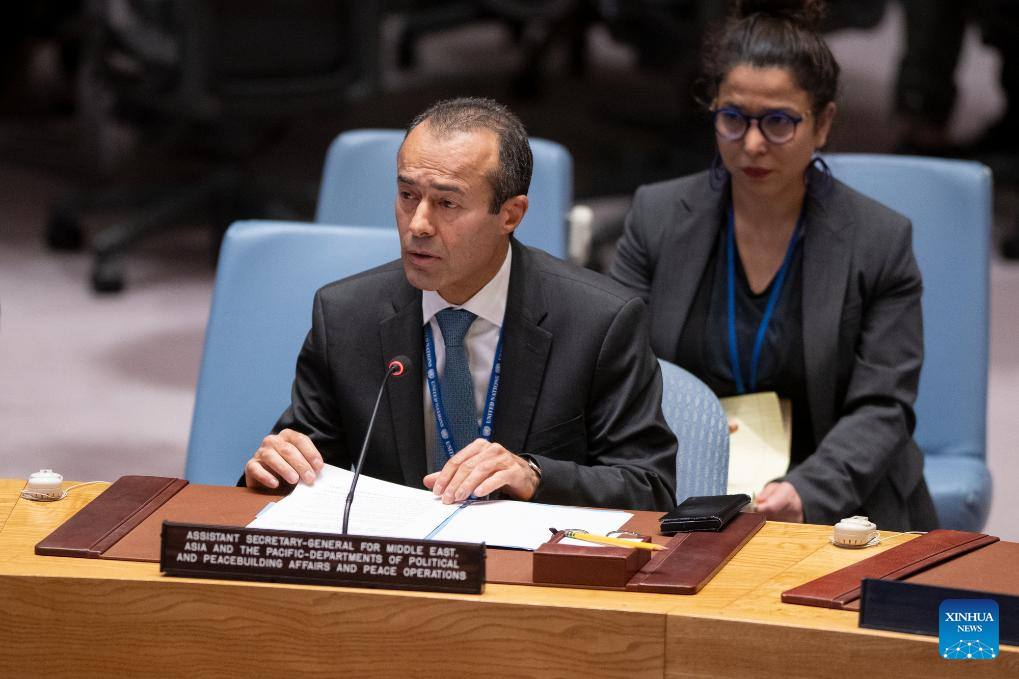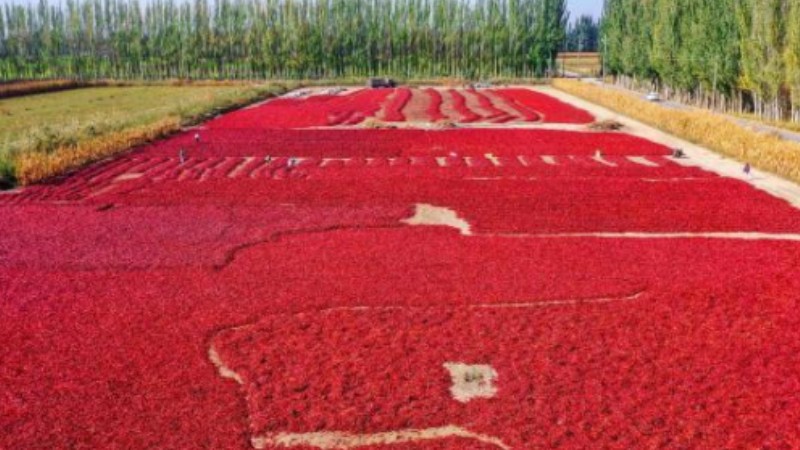UN official warns of global impact of geopolitical tensions

Khaled Khiari (Front), the UN assistant secretary-general for Middle East, Asia and the Pacific, speaks at a high-level debate of the UN Security Council on the contribution of regional, subregional and bilateral arrangements to the prevention and peaceful resolution of disputes at the UN headquarters in New York, on Oct. 20, 2023. (Manuel Elias/UN Photo/Handout via Xinhua)
UNITED NATIONS, Oct. 20 (Xinhua) -- A UN official on Friday warned of the negative global impact of geopolitical tensions as the world order is undergoing transition.
"The world has entered a new era. The post-Cold War period is over and a transition is under way to a new global order. As history teaches us, transition periods come with heightened risks," said Khaled Khiari, the UN assistant secretary-general for Middle East, Asia and the Pacific.
The new era is already marked by deepening divisions and retrenchment, and geopolitical tensions are at their highest in decades, he told a high-level debate of the UN Security Council on the contribution of regional, subregional and bilateral arrangements to the prevention and peaceful resolution of disputes.
Contestation and competition among states is increasingly testing the boundaries set in the UN Charter, he said. "The ensuing loss of trust -- and the risks of escalation -- affect almost all regions."
At the same time, many states are skeptical of how the multilateral system is working for them, and have profound grievances regarding unmet commitments and double standards. Women and men everywhere also have a deep sense that governments and international organizations are failing to deliver for them, he said.
With increasing geopolitical strife and challenges to international norms, negotiated settlements of conflicts have been harder to achieve. The pursuit of military solutions has sadly been a prominent feature of recent conflicts for which civilians are paying a heavy toll, he said.
The deterioration of global and regional arms control frameworks and crisis management protocols has increased the possibility of dangerous standoffs, miscalculations and escalation. In some regions, polarized global politics are mirrored in the unraveling of integration efforts that had previously contributed to regional stability for decades, he said.
The driving force for a more effective collective security system must be diplomacy, said Khiari.
Today the stakes for preventive diplomacy and dialogue could not be higher. The dangerous and escalating situation in Israel and the occupied Palestinian territory is a bitter reminder of the urgent need for an end to the horrific violence, an immediate humanitarian cease-fire and a pathway to negotiations toward a just, lasting and comprehensive political solution. Absent a negotiated two-state solution, this vicious cycle of violence risks plunging the entire region into conflict for years and generations to come, he warned.
Chapter VI of the UN Charter prescribes that all states shall rely on peaceful means as their first option to resolve disputes. It offers a range of options to address differences within the framework of the Security Council, within respective regions, or bilaterally, he said. "Adherence to the principles set out in the United Nations Charter remains an essential precondition. It is our collective obligation under international law to prevent and resolve armed conflict."
Regional organizations and frameworks have a critical role to play in this regard. They can bring credibility and legitimacy for preventive diplomacy. They can help increase trust and reduce misperceptions. And they can enhance mechanisms for crisis management, he said.
In the face of growing competition at the global level and increasingly transnational threats, regional frameworks and organizations can offer avenues for trust-building and detente, he said.
"We cannot afford to leave any stone unturned in search of avenues for de-escalation and trust-building. For this to work, we need courage to listen to the views of others and consider them in good faith. Regional frameworks and institutions play a key bridge-building conduit in this regard," he said. "At a time of heightened tensions, it is our shared responsibility to do everything in our power to maintain the system of collective security that our predecessors built."
Photos
Related Stories
- UN Security Council extends ban on illicit oil export from Libya
- Over 100 countries support China's position at UN: FM spokesperson
- Xi meets Guterres, pledging to work with UN for world peace, development
- China secures 6th term as member of UN Human Rights Council
- 15 states elected members of UN Human Rights Council
Copyright © 2023 People's Daily Online. All Rights Reserved.









